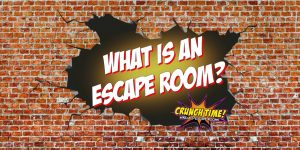Escape Room Challenge
Escape room challenges are a type of puzzle game where participants enter a themed room with their group and work together to solve riddles, puzzles, and clues in order to complete the challenge. The goal is to find the code or key that unlocks the door and escapes the room within the allotted time frame of 60 minutes.
These immersive experiences can be an incredibly fun way to bond with your friends and family. However, they are also an opportunity to build important cognitive skills like focus and concentration that can help you overcome challenging tasks in real life. In fact, many studies have shown that people who frequently engage in puzzle-filled activities experience an increased level of cognitive performance in everyday life get more information.

On average, it takes a team of 8-10 people about an hour to complete a single escape room at Escape Ops. However, the duration can vary depending on the difficulty level of the challenge and your team’s problem-solving skills.
What is an Escape Room Challenge?
One of the most common obstacles that can derail a team’s escape room success is miscommunication. It’s essential to encourage communication among teammates throughout the challenge, especially since most clues are meant to be found by all members of the team. It’s also crucial to stay organized and keep a record of which pieces of information you’ve already used in case they become useful later on.
If you’re stuck on a puzzle, try to think outside of the box and consider whether there are other ways to solve it. If you’re really stuck, don’t hesitate to ask for a hint from your Game Guide! It’s not uncommon for teams to need a little bit of extra assistance from time to time, and your Game Guide will be more than happy to provide a hint when it is needed.
Red herrings are a common element of escape room design that can be frustrating and inconvenient for players. These elements are often designed to distract players from the true purpose of a puzzle or clue. These distractions can include things like a “callback” that appears later in the room, such as an object that is similar to something seen earlier. These types of “deja vu” moments can be a great clue-provider for experienced escape room players.
Escape rooms are a great way to build confidence and self-esteem by challenging players to solve difficult puzzles under pressure. Successfully completing an escape room can be a significant confidence booster and can motivate individuals to take on other difficult challenges in their lives. This heightened sense of self-belief can impact other areas of life, encouraging individuals to take on even the most daunting of obstacles with greater ease. In addition, the gratification that comes from conquering an escape room can inspire individuals to pursue additional challenging activities and achieve long-term success.